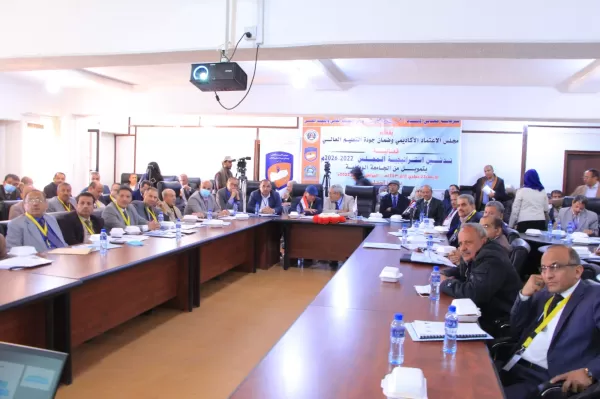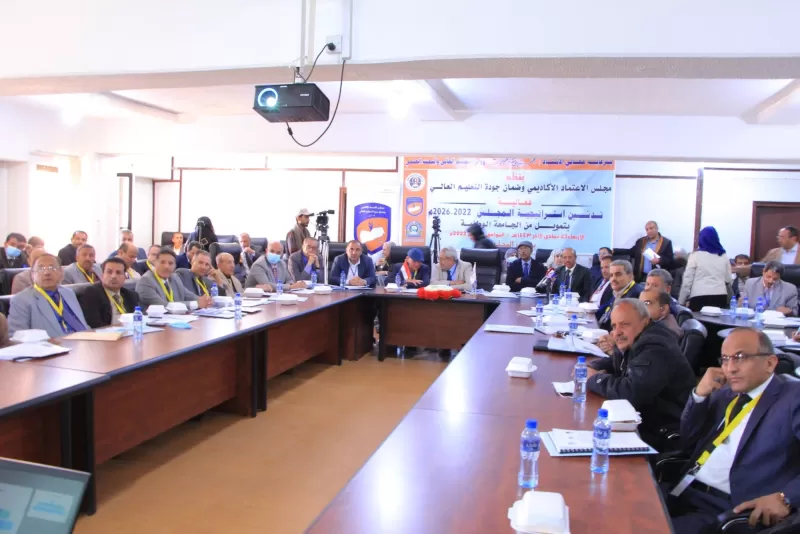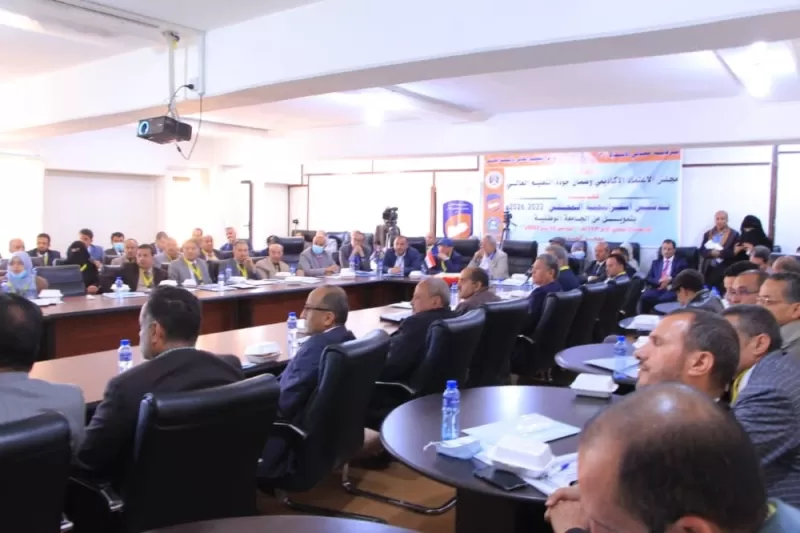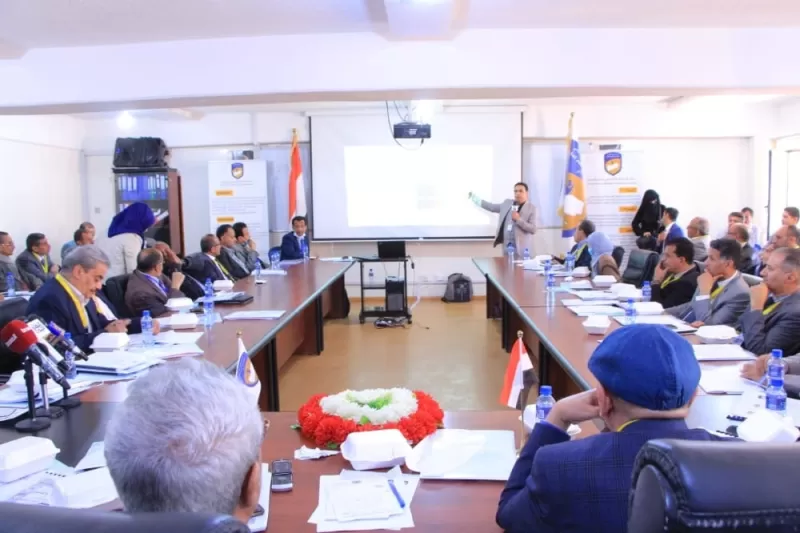Emirates International University
Modernity
Distinguish

University / follow-up
Today, Wednesday, the President of the Emirates International University, Dr. Najeeb Al-Kumaim, participated in the inauguration of the strategy of the Academic Accreditation Council and the Quality Assurance of Higher Education "2026-2026", in the presence of the Ministers of Higher Education and Scientific Research Hussain Hazeb, Planning and Development Dr. The Academic Accreditation Council. The strategy aims to complete the normative structure and disseminate its culture and application mechanisms to ensure good practices that qualify higher education institutions for academic accreditation at the national and international levels, and to find effective solutions to provide an adequate budget for the Council. It also aims to strengthen the governance and management systems, consolidate the vision and independence of the Council in carrying out its tasks, develop the organizational structure in a comprehensive way, and provide the infrastructure and the physical and technical equipment that the Council needs. At the inauguration, Minister of Higher Education and Scientific Research Hussein Hazeb stressed the importance of inaugurating the council's five-year strategy to organize the relationship with governmental and private higher education institutions and to strengthen partnership with the regional and international environment. He pointed out that the council has great tasks, foremost of which is the rehabilitation and improvement of academic programs in Yemeni universities to enable them to obtain national accreditation in the context of the quest for global merit in 2023 by the International Federation of Medical Education. He pointed out that the ministry will be of assistance and support to the council in implementing its tasks and objectives, and the contents and objectives of the national vision to reform the conditions of higher education institutions and programs in general and to reach five Yemeni universities among the top 100 Arab universities. Minister Hazeb touched on the steps recently taken by universities and encouraging them to apply to the council for special program accreditation, considering the council the only gateway to higher education in the Republic of Yemen. He explained that Yemen possesses competencies and academic minds that were able to achieve the national academic reference standards "NARS" for 16 medical and engineering academic programs. For his part, Chairman of the Council for Academic Accreditation and Quality Assurance, Dr. Ahmed Al-Haboub, confirmed the strategic planning as a roadmap and an ideal option for leading educational institutions to chart their future aspirations. He stressed that the success of strategic planning in these tasks depends on the nature of the scientific methodology, the availability of will, and the transformation of goals into tangible reality, which contributes to the improvement and improvement of educational outcomes. Dr. Al-Haboub touched on the challenges facing the council in its organizational and infrastructure structure, as well as enabling higher education institutions to obtain national academic accreditation in preparation for obtaining international merit, especially universities and medical colleges, before 2023. In the event, which was attended by the Undersecretary of the Ministry, Dr. Ghaleb Al-Qans, Dr. Abdul Karim Al-Roudi, the Undersecretary of the Ministry of Communications, Dr. Abdul Rahman Abu Talib, the Ministry’s leaders and heads of public and private universities, the Secretary-General of the Academic Accreditation Council, Dr. Muhammad Dhaif Allah, and the national expert, Dr. Noman Fairouz, reviewed the stages of preparation for strategic planning. Surveying the contexts and references related to the nature of the council's work and the mechanism for designing models and tools for the council's strategic environmental analysis. He touched upon the steps of the final environmental analysis, surveying the strengths and weaknesses, the available opportunities and potential threats to the council's internal and external environment, analyzing and computerizing the results of the surveys using the statistical analysis program and extracting the gap, identifying critical issues and surveying the corresponding experiences and strategies at the Arab and international levels.



